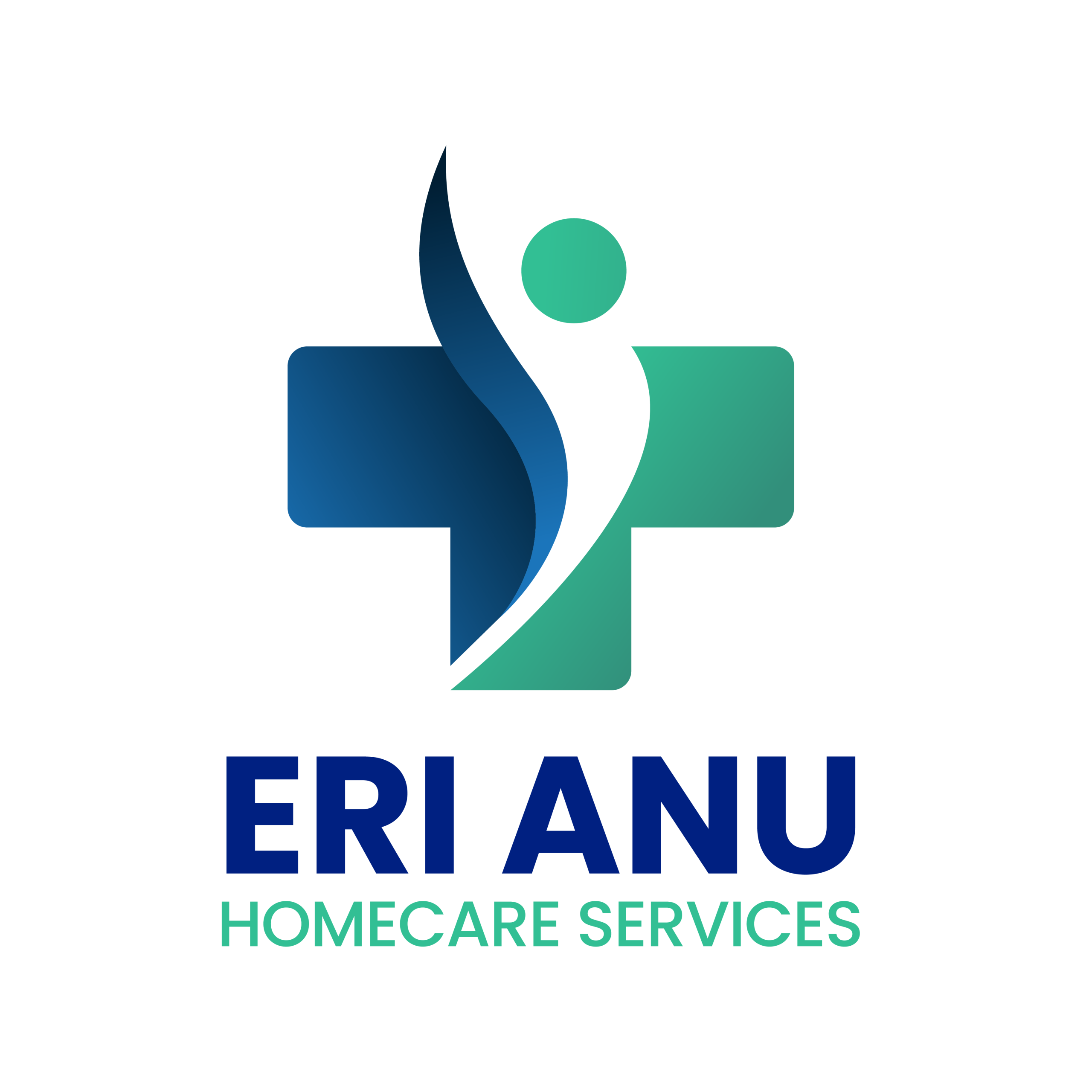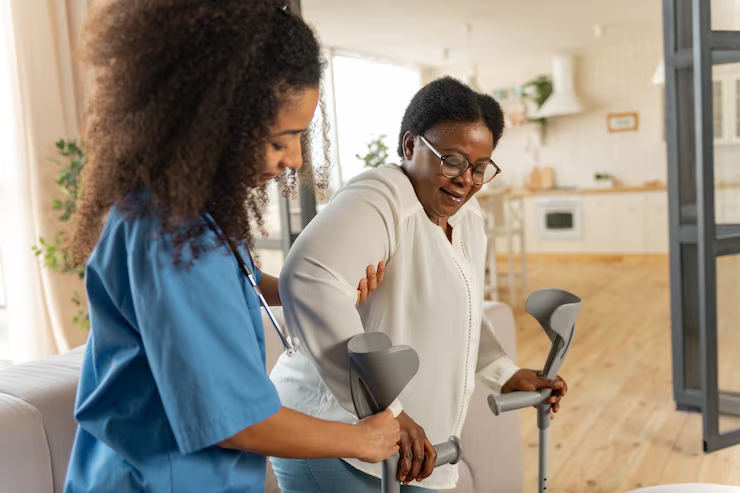Understanding Elder Care Services in Nigeria
Elder care services in Nigeria have become a lifeline for families seeking professional support for aging parents and loved ones. Traditionally, Nigerian households managed elder care within the family. However, modern lifestyles, increased urbanization, and growing medical needs have made professional elder care essential.
What Is Elder Care and How It Works
Elder care refers to professional assistance provided to senior citizens in their homes. It includes personal support such as grooming, feeding, mobility aid, companionship, and medical services like medication management, physiotherapy, and wound care.
Through customized care plans, older adults receive personalized attention while maintaining independence and comfort at home a preferred alternative to institutional care.
Eri Anu Homecare Services provides professional home care, nursing, and companion support across Nigeria, ensuring compassionate care for seniors and patients in the comfort of their homes.
Phone Us
Visit Us
1, Wesume street, Ado-Odo/Ota LGA, Ogun State, Nigeria, Badagry, Nigeria
Mail Us
The Growing Need for Elderly Care in Nigeria
Nigeria’s population of seniors is steadily increasing. With life expectancy improving and family structures evolving, more families now rely on elder care services to ensure their loved ones receive adequate medical and emotional support. This rising demand has encouraged the growth of professional caregivers, nurses, and home support agencies across the country.
Differences Between Elder Care, Nursing Homes, and Hospitals
While hospitals focus on short term treatment, elder care emphasizes long term support within a familiar environment. Nursing homes can offer residential care but often lack personal touch and family connection. Elder care at home provides a balance of professional support and emotional warmth, helping seniors feel safe and valued.
Types of Professional Elder Care Services in Nigeria
Personal and Companion Care Services
Companion caregivers assist with activities of daily living such as bathing, dressing, cleaning, and meal preparation. They also provide emotional companionship, ensuring seniors remain socially active and mentally stimulated.
Skilled Nursing and Medical Home Support
Professional nurses deliver medical care at home, including wound dressing, injection administration, catheter care, blood pressure monitoring, and chronic disease management. These skilled services allow patients to receive hospital grade attention without leaving home.
Post Surgery and Rehabilitation Care
After surgery or hospitalization, seniors often require rehabilitation support. Trained caregivers and physiotherapists provide recovery assistance, exercise routines, and regular check ups to restore mobility and prevent complications.
Dementia, Alzheimer’s, and Palliative Care Services
Specialized caregivers are trained to handle conditions such as dementia and Alzheimer’s with patience and empathy. Palliative care focuses on comfort, dignity, and pain relief for patients facing serious illnesses, ensuring quality of life in their final stages.
Benefits of Choosing Elder Care at Home
Comfort and Familiar Environment
The biggest benefit of elder care at home is comfort. Seniors can recover and live in their familiar surroundings, which supports emotional stability and faster recovery.
Emotional Well Being and Family Connection
Home based elder care allows family members to remain closely involved in care giving. This emotional connection reduces loneliness, anxiety, and depression among seniors.
Cost Effectiveness Compared to Institutional Care
Compared to long hospital stays or nursing home residency, in home elder care is more cost efficient. Families can select tailored packages that suit their budget whether part time assistance or 24 hour nursing care.
How to Choose the Right Elder Care Provider in Nigeria
Key Qualities of Professional Caregivers
When choosing a caregiver, prioritize empathy, communication, professionalism, and medical knowledge. Experienced caregivers understand not only the medical needs of seniors but also their emotional and cultural sensitivities.
Questions to Ask Before Hiring a Caregiver or Nurse
- What type of training has the caregiver received?
- Is the caregiver experienced with elderly or bedridden patients?
- Does the agency conduct background and health checks?
- What safety measures are in place during emergencies?
Verifying Licensing, Training, and Background Checks
Ensure the caregiver or agency is licensed under relevant Nigerian health authorities. A reputable provider should also have verifiable references, transparent pricing, and proper documentation.
Elder Care Services Across Nigerian Cities
Elder Care in Lagos and Abuja
Lagos and Abuja remain the leading cities for professional elder care services. Reputable agencies in these regions offer both medical and companion care options, often staffed by licensed nurses and trained caregivers.
Elderly Nursing Support in Ogun and Oyo States
Beyond the major urban centers, states like Ogun and Oyo are seeing a rise in certified home care providers offering quality and affordable elderly support. These agencies bring compassionate healthcare closer to suburban and semi rural families.
Regional Access to Trained Caregivers
Many Nigerian families in smaller cities such as Enugu, Port Harcourt, and Kaduna are now benefiting from expanding home care networks. This growth ensures that trained caregivers are increasingly available across the nation.
Cost of Elder Care Services in Nigeria
Factors That Affect Pricing
Elder care costs depend on the nature of care, duration, and level of medical expertise required. Factors such as city, caregiver certification, and frequency of visits can also influence total expenses.
Average Elder Care Rates
Basic companion care may cost between ₦15,000 and ₦45,000 daily, while professional nursing services range from ₦30,000 to ₦90,000 depending on medical complexity and location. Long term or live in caregivers typically attract monthly packages that are more economical.
Tips for Budgeting and Comparing Care Options
Request a written quotation from multiple providers. Check if prices include medication management, physiotherapy, or transportation. Always clarify service inclusions to avoid hidden costs.
The Future of Elder Care in Nigeria
The Role of Technology and Telehealth
Technology is transforming elder care services in Nigeria. Digital tools like remote patient monitoring, telemedicine apps, and mobile health platforms enable caregivers and doctors to provide real-time support and follow-up care.
Government Regulation and Professional Standards
As the sector grows, Nigeria’s healthcare authorities are beginning to establish clearer regulations for home care providers. Accreditation and continuous caregiver training are expected to raise the standard of professional elder care across the nation.
Emerging Trends and Opportunities
With a rising elderly population, the future of elder care in Nigeria is promising. There’s a growing market for specialized services such as physiotherapy at home, dementia care, and chronic illness management. These developments create employment opportunities and improve healthcare access nationwide.
Why Choose Professional Elder Care Services
Ensuring Dignity, Safety, and Personalized Care
Elder care focuses on dignity, comfort, and respect for every individual. Professional caregivers ensure safety by adhering to health protocols, maintaining clean environments, and providing emotional support.
How Elder Care Improves Quality of Life
By blending medical expertise and emotional companionship, home based care enhances the quality of life for seniors. They enjoy independence, reduced stress, and continuous family interaction.
Partnering with Trusted Agencies like Eri Anu Homecare Services
When choosing a reliable provider, agencies like Eri Anu Homecare Services stand out for their dedication to compassionate, professional, and affordable elder care across Nigeria. Their team of trained nurses and caregivers ensures peace of mind for families nationwide.
For compassionate and professional elder care, nursing, and companion support in Nigeria, visit Eri Anu Homecare Services, where your loved ones comfort and well being are our top priority
Phone Us
Visit Us
1, Wesume street, Ado-Odo/Ota LGA, Ogun State, Nigeria, Badagry, Nigeria
Mail Us
Frequently Asked Questions About Home Care Services in Nigeria
What are home care services in Nigeria?
Home care services in Nigeria provide professional support for seniors or patients at home, including personal care, nursing, rehabilitation, and companionship.
How do I choose the right elder care service provider in Nigeria?
Consider licensing, caregiver qualifications, client reviews, and types of services offered to select a trusted home care provider.
What is the difference between home care and home nursing?
Home care includes daily assistance and companion support, while home nursing involves professional medical care from licensed nurses.
How much do home care services cost in Nigeria?
Costs vary by service type, duration, and location. Companion care may cost ₦15,000–₦45,000 daily, while professional nursing can range from ₦30,000–₦90,000 daily.
Are home care services available across all Nigerian cities?
Yes. Major cities like Lagos, Abuja, Ogun, and Oyo have a wide range of professional home care services, while rural availability is growing steadily.
Can home care services be customized for dementia or Alzheimer’s patients?
Yes. Specialized caregivers provide memory care routines, safety supervision, and emotional support tailored to seniors with dementia or Alzheimer’s.
What qualifications should a home caregiver or nurse have?
Caregivers should have certified training in elderly or home nursing care, verifiable experience, and background, health checks for safety.
What are the benefits of hiring home care instead of hospital care?
Home care offers comfort, personalized attention, reduced costs, and emotional support while seniors remain in familiar surroundings.

